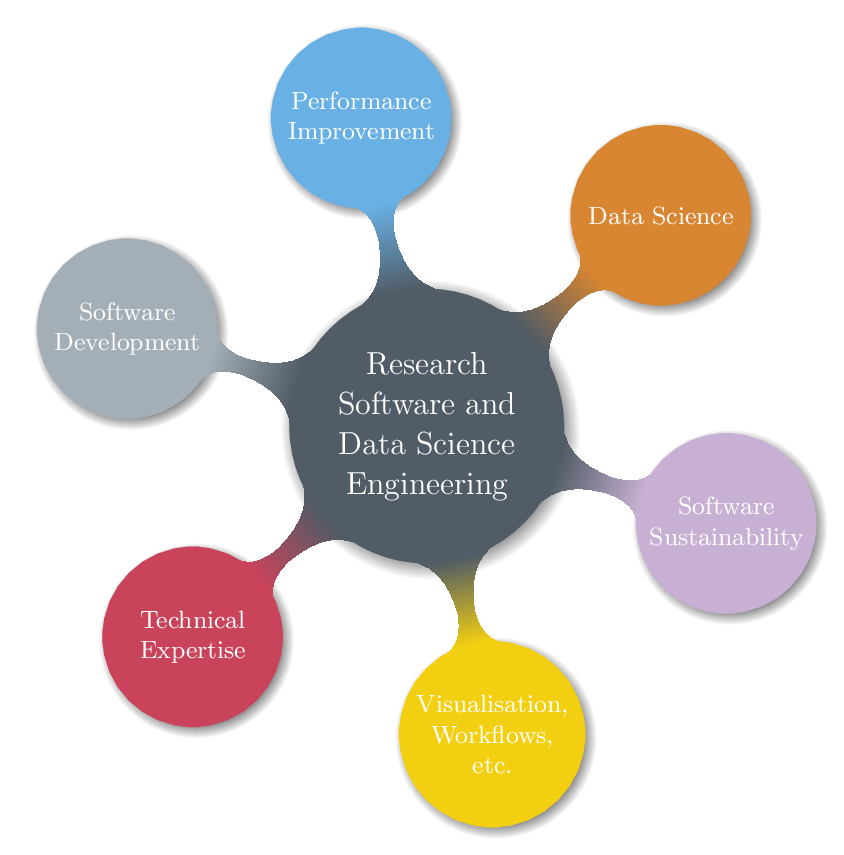Consultancy
NeSI’s Consultancy Service provided scientific and HPC-focused computational and data science support to research projects across a range of domains.
How we helped
The NeSI team was available to help with any stage of a research software development. We got involved with designing and developing your software from scratch, or assist with improving software you have already written.

The service was completely bespoke and tailored to your requirements. Some examples of outcomes we could assist with (this list is general and non-exhaustive):
- Code development
- Design and develop research software from scratch
- Algorithmic improvements
- Translate Python/R/Matlab code to C/C++/Fortran for faster execution
- Accelerate code by offloading computations to a GPU
- Develop visualisation and post-processing tools (GUIs, dashboards, etc)
- Performance improvement
- Code optimisation – profile and improve efficiency (speed and memory), IO performance
- Parallelisation – software (OpenMP, MPI, etc.) and workflow parallelisation
- Improve software sustainability (version control, testing, continuous integration, etc)
- Data Science Engineering
- Optimise numerical performance of machine learning pipelines
- Conduct an Exploratory Data Analysis
- Assist with designing and fitting explanatory and predictive models
- Anything else you can think of ;-)
What we provided
- Expertise and advice
- An agreed timeline to develop or improve a solution (typical projects are of the order of 1 day per week for up to 4 months but this is determined on a case-by-case basis)
- Training, knowledge transfer and/or capability development
- A summary document outlining what has been achieved during the project
- A case study published on our website after the project has been completed, to showcase the work you are doing on NeSI
Previous projects
Listed below are some examples of previous projects we have contributed to:
- A quantum casino helps define atoms in the big chill
- Using statistical models to help New Zealand prepare for large earthquakes
- Improving researchers' ability to access and analyse climate model data sets
- Speeding up the post-processing of a climate model data pipeline
- Overcoming data processing overload in scientific web mapping software
- Visualising ripple effects in riverbed sediment transport
- New Zealand's first national river flow forecasting system for flooding resilience
- A fast model for predicting floods and storm damage
- How multithreading and vectorisation can speed up seismic simulations by 40%
- Machine learning for marine mammals
- Parallel processing for ocean life
- NeSI support helps keep NZ rivers healthy
- Heating up nanowires with HPC
- The development of next generation weather and climate models is heating up
- Understanding the behaviours of light
- Getting closer to more accurate climate predictions for New Zealand
- Fractal analysis of brain signals for autism spectrum disorder
- Optimising tools used for genetic analysis
- Investigating climate sensitivity
- Tracking coastal precipitation systems in the tropics
- Powering global climate simulations
- Investigating climate sensitivity
- Improving earthquake forecasting methods
- Modernising models to diagnose and treat disease and injury
- Cataloguing NZ's earthquake activities
- Finite element modelling of biological cells
- Preparing New Zealand to adapt to climate change
- Using GPUs to expand our understanding of the solar system
- Speeding up Basilisk with GPGPUs
- Helping communities anticipate flood events






